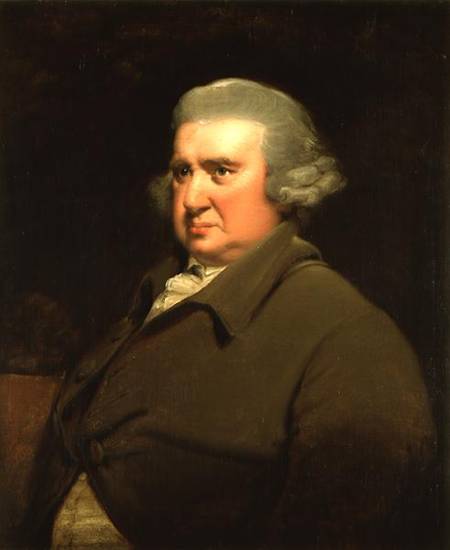Kevin arrived late, but better late than never huh? Actually he got confused about the time and I wasn’t answering my phone, having taken seriously the Vic’s preference that you put your phone on silent, which meant I can’t actually hear it… A good policy I thought, as is the no TV thing, especially on a night when there was an apparently important football game on in Rome. The lack of phones ringing is a good thing, but we were still occasionally drowned out by passing trains. Anyway Kevin arrived late, after we’d almost given up on him and launched into a debate on Sartre’s ‘Existentialism and Humanism’. He also left early, claiming that the Uni was sending him on a trip to Khazakstan, and he had to catch an early train to London and sit in the Khazakstan Embassy all day waiting for a visa. Now either Kevin has a much more interesting life than the rest of us, or a very elaborate fantasy life. And if the University is sending you to Khazakstan “for a few days”, what does that tell you about how they feel about you? Maybe it’s a funny little English Department joke they play on all their new lecturers – oh how they laughed thinking about the look on his face as he turns up at the Embassy to be confronted by a bunch of diplomats with no sense of humour – “No, Doctor Harvey, we don’t have any record of an appointment to get you a visa…”
Anyway, enough of my own fantasy life (or jealousy!), Dave had picked the book, which had the virtue of being very short, for a work by a French philosopher. The introduction is nearly as long as the lecture text, and is followed by a Q&A session where a M. Naville tries to show what a smart-alec he is by holding forth at the end. “Actually mate, we all came to hear what M. J-P Sartre had to say, not hear what you think.” We’ve all been there, questions at the end of a presentation where someone tries to score points, but M. Sartre was very restrained and, as far as the records show, didn’t slap the guy, but contented himself with a Gallic shrug and a sensible answer or two. Turns out we are all responsible for the choices we make…

M. Sartre refills his pipe whilst bravely tolerating the exposition of M. Naville
Which is pretty much the central thesis of the book, a particular favourite of Dave. Whilst we got the central thesis I was a little concerned that this actually puts a heavy responsibility on us all, making choices which affect not only ourselves but all of mankind. Not that I could quite make out that link, that what we do translates across to making choices for everyone else, and Sartre then bases a lot of what follows on that premise. Of course, our choices affect other people in many ways but do not construct the world in the way implied by Sartre or at least he does not, in this particular text, make this connection strongly enough. Maybe he elaborates on this in more detail elsewhere, but not sufficiently in ‘Existentialism is a Humanism’.

Dress-down Fridays became something of an art form in 1970s Paris...
Coming from a mental health bent, as we do, there was also a lot of discussion about how informed the choices we make can be. Sartre is very clear on taking responsibility for those choices, preferring to minimise the effects of both Nature and Nurture on how those choices are made, but seems to assume a high degree of rationality on those choices. What about those with less capacity, the learning disabled, or those temporarily or permanently afflicted by mental health issues? Are they able to make such informed choices? The discussion centered around this as a limitation of most philosophies which originate from the intellectual classes who assume a similar level of capacity in everyone, which may not necessarily be the case. Are those with horrific experiences to be blamed for how they react to adversity? What do we make of the different levels of resilience which seem to affect the way in which people survive abuse or misfortune, is that entirely a choice that can be made rationally?
Having dealt with Sartre we moved onto less weighty matters. I had brought along a copy of McKeiver’s book on Cromwell’s Irish campaigns.

A New History of Cromwell's Irish Campaigns
Showing it to the others they quickly detected my problem with this book – the worst punctuation in a published book I have ever seen. Now there is a point to this, as Paul often pointed out the limitations of my own punctuation skills when he supervised my own thesis, even making me read the bible of grammar nazis ‘Eats Shoots and Leaves’ in an attempt to quell my fascination with the grocer’s apostrophe. But McKeiver takes it to a new level, with approximately three times as many commas in each sentence as are strictly necessary, making reading the text a chore. And when you do work out what he’s saying it’s mostly not worth the effort anyway, blatant apologism which probably means that Mr McKeiver will not be able to travel to the Republic of Ireland under his own name in the near future…
Inevitably a certain amount of beer was consumed, Dave and Paul being quite keen to stick to their favourite Harvest Pale. Preferring the darker bitters myself I enjoyed a couple of pints of Bargee bitter, and some unspeakable muck that Kevin bought me because he misheard what I asked for, probably a train was passing at the time…
Turns out that we are not the only ones who read the blog, so here’s special mention for Dave’s better half – Hi Jan!
Next month we’re reading Susan Sontag’s ‘On the Pain of Others’ a cheery little number on what we get out of seeing images of horror and pain, or ‘A corruscating sermon on how we picture suffering’ (New York Times) depending on your point of view.
After that we have to pick a whole new round of books, so each of us needs to have a thought about what to inflict on the others! The discipline of reading stuff you wouldn’t necessarily pick to read has, however, been an interesting challenge for us all, we agreed, so I think we’re looking forward to the next cycle of Lunar Society reading…







